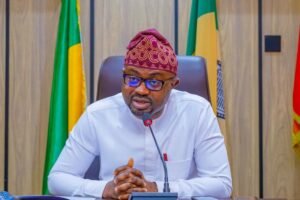
By David Akinmola
Nigeria’s economy was valued at N372.82 trillion in 2024 following a comprehensive rebasing exercise of the country’s Gross Domestic Product (GDP), according to the latest figures released by the National Bureau of Statistics (NBS).
The rebased data, which updates the reference year from 2010 to 2021, offers a more accurate and contemporary reflection of Nigeria’s economic structure, incorporating new sectors and adjusting for changing consumption patterns, technological advancements, and shifts in global economic realities.
According to the NBS, the rebased nominal GDP for 2024 represents a significant increase from previous estimates and provides a broader and more realistic view of the country’s economic output.
“This rebasing was necessary to ensure our national statistics reflect current economic realities. It captures previously underreported or emerging sectors such as digital services, e-commerce, renewable energy, and creative industries,” the NBS said in a statement.
Sectoral Adjustments and Impact
The revised data shows notable growth in previously underrepresented sectors. The services sector now constitutes a larger share of GDP, with increased contributions from information and communication technology (ICT), finance, entertainment, and education.
Agriculture, while still a key contributor, has a relatively smaller share compared to previous years due to a more balanced sectoral representation in the new data. Industry and manufacturing also showed moderate gains, though still facing structural challenges like power supply and infrastructure deficits.
Why GDP Rebasing Matters
GDP rebasing is a routine statistical practice used to ensure economic data remains current and accurate. The last rebasing in Nigeria occurred in 2014, when the base year was changed from 1990 to 2010. This latest update comes a decade later, aligning Nigeria’s data with global best practices and enabling better economic planning, investment analysis, and policymaking.
“This exercise ensures that Nigeria’s GDP statistics are not just numbers, but meaningful tools for fiscal planning, debt sustainability analysis, and investment decisions,” said Dr. Yemi Kale, former Statistician-General of the NBS.
International Implications
With the new GDP figure, Nigeria retains its position as Africa’s largest economy, ahead of South Africa and Egypt. The rebasing is expected to boost investor confidence, particularly among foreign investors seeking up-to-date and reliable economic data.
However, economists caution that a larger GDP figure does not automatically translate to improved living standards. “What matters more is how inclusive and sustainable the growth is,” noted Kemi Adeoye, an economist at the Nigerian Economic Summit Group (NESG). “Rising GDP must reflect in job creation, poverty reduction, and improved access to healthcare and education.”
Outlook and Next Steps
The Federal Government is expected to use the revised data to refine its fiscal and development strategies, including the Medium-Term Expenditure Framework (MTEF) and Vision 2050 plans. Analysts also expect it to influence Nigeria’s debt-to-GDP ratio, potentially creating more borrowing space on paper—but with caution urged to ensure fiscal discipline.
As the NBS continues to modernise its data collection and analysis processes, stakeholders are optimistic that the rebased figures will support more informed decisions across both public and private sectors.






